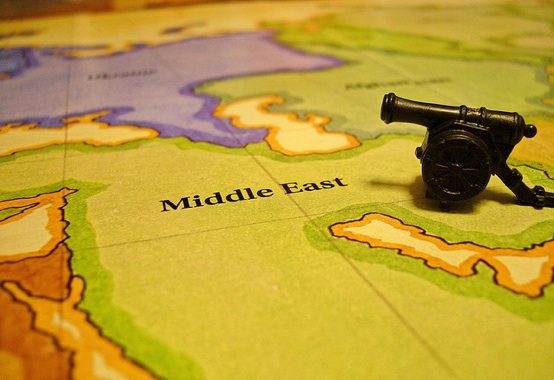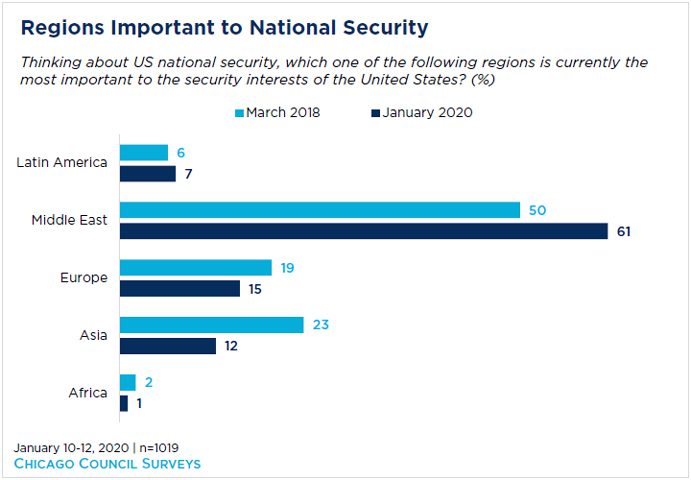How Threat Inflation Distorts Public Opinion

The Chicago Council on Global Affairs has released more findings from its survey on the American public’s views on foreign policy. One of the more troubling findings is that even more Americans now perceive the Middle East to be the most important region for U.S. security interests than they did two years ago:

This result is discouraging because it shows how distorted the public’s perception of U.S. interests is, and it shows that the public judges the importance of these regions to the U.S. based on the amount of attention paid to them in government officials’ rhetoric and in media coverage. The Trump administration has been obsessed with Iran, and it has gone out of its way to cater to the wishes of Saudi Arabia, the UAE, and Israel in both words and deeds. The U.S. has been deploying more troops to the region over the last year, and the U.S. and Iran nearly went to war twice during that same period. The region has not only been the main focus of the administration’s foreign policy, but it is also the region that has received the most coverage in connection with U.S. foreign policy. The conclusion that 61% of Americans drew from this obsessive attention was that the region must be the most important for U.S. interests, and it is understandable that they might draw such a conclusion, but it is as wrong as can be.
The Middle East isn’t all that important to the U.S., especially when it is compared to Europe or East Asia, but its importance is constantly inflated along with the threats that are blown out of proportion. Steven Metz has written a valuable article on how threat inflation has made ISIS seem much more dangerous to the U.S. than it ever was:
To counter this inclination, and to undertake foreign entanglements, justify large military expenditures, and make themselves appear tough by relying on threat inflation. Today the Islamic State or ISIS has taken center stage in this tradition, and the danger it poses is consistently exaggerated. The result is a potentially dangerous failure to balance strategic costs against strategic benefits and to see ISIS as the relatively modest threat that it actually is.
If Americans are led to believe that ISIS is a major threat to the U.S., it may make sense to see the region where they operate as very important to U.S. security, but they aren’t and it isn’t. The perception that the Middle East is the most important region is badly mistaken, but it is the one that political leaders and news coverage promote on a daily basis. It is the region where the U.S. has been constantly at war for almost twenty years, but it is actually the part of the world that matters least economically and strategically to U.S. security. The problem with this wrong perception is that it leads to support for a military presence and long-term bases that aren’t needed, and that in turn makes it easier for the U.S. to take part in unnecessary wars that have nothing to do with our security. Extricating U.S. forces from the Middle East will require explaining to the public that the U.S. has frittered away trillions of dollars and thousands of lives in avoidable conflicts in a region that wasn’t very important to our security. In short, the public needs to understand how badly they have been misled and misinformed for at least the last two decades.
Comments